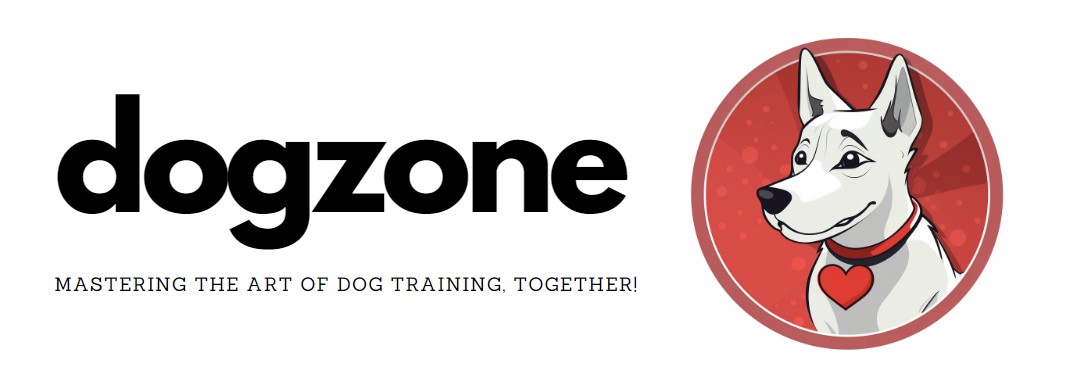Feeding raw meat and bones to a puppy is an even more daunting prospect than knowing what to feed them full stop. You probably feel overwhelmed at times – I know I did when I brought home my first 8 week old puppy!
With so many different types of food and treats available, it can be difficult to know what’s safe and healthy. One question which often comes up is whether puppies can eat chicken necks.
It’s not as straightforward as saying “Yes, they can!”, so in this article we’ll address the following:
Can 8 Week Old Puppies Eat Chicken Necks?
Did you know some breeders ween puppies partly on chicken necks?
You probably already know what your breeder fed your puppy, and if it included raw that will give you some assurances.
Chicken necks can be a great source of protein and other essential nutrients for puppies. The benefits don’t end there either, as chewing meat and bones provide mental stimulation and alleviate destructiveness from boredom. Better a meaty bone than your slippers I’d say.
As your dog gets older, raw meaty bones can be an excellent way to keep their teeth healthy as well.
“Kittens and puppies should be offered chicken necks and wings from three weeks to promote good health”
Australian veterinarian Dr. Tom Lonsdale (Raw Meaty Bones)
However, feeding chicken necks to puppies is not without risks.
One potential risk is chicken necks can be a choking hazard, especially for puppies who are still learning to chew and swallow properly. Another risk is they may cause constipation or other digestive problems, especially you feed them too many.
If you’re concerned about feeding chicken necks (or chicken wings) to your new puppy, then consider the following:
- Introduce chicken necks gradually and in moderation. Monitor your puppy’s digestion and overall health for any signs of discomfort or adverse reactions. Keep in mind the digestion of a puppy can be all over the place as they adapt to any new foods.
- Choose high-quality chicken necks from a reputable source. Chicken necks in Coles and Woolworths are human grade which is a higher standard than pet grade meat. If you buy from a pet store or pet meat supplier you must ask if any meat is human or pet grade, and be wary of the latter.
- Always supervise your puppy when they are eating chicken necks (or any type of bone or chew toy for that matter). If your dog’s a “gulper” or enthusiastic eater then keep a very close eye on them.
If you still have doubts you can consult your veterinarian or seek the advice from members of raw feeding groups on social media – raw feeding is a very popular way of feeding dogs these days.
How to Prepare Raw Chicken Necks
Most raw feeders given their dogs chicken necks straight from the packet. The bones are very pliable, and most dogs have no issues eating them whole.
If preferred, or if you have a smaller dog, you can use a meat tenderiser or mallet to soften them up.
How to Prepare Cooked Chicken Necks
Most raw feeders advise against feeding any bones “cooked”, for good reason, but it’s possible to boil chicken necks to help kill harmful bacteria. If this is a worry for you, then this is how to cook chicken necks:
- Rinse the chicken necks thoroughly under running water to remove any dirt or debris.
- Place the chicken necks in a pot of boiling water and let them simmer for about 20-30 minutes. This will help to kill any harmful bacteria that may be present.
- Make sure the chicken necks are soft. If not, let them simmer for longer until they are.
- Let the chicken necks cool before serving them to your puppy. This will help to prevent any burns or injuries to your puppy’s mouth or digestive system.
Never feed other cooked bones (other than slow cooked in bone broth). Any cooked bone can be brittle and cause harm or obstruction.
How Often Can You Feed a Puppy Chicken Necks?
Although this depends on the rest of their diet, as a general rule use the following advice.
Puppies should consume no more than 10% of their daily caloric intake from treats or other non-nutritive sources. For the time being consider chicken necks a part of this allowance. This can work well if you’re feeding a “complete and balanced” puppy food.
Here’s a good process to follow:
- Start by offering your puppy one or two chicken necks per week. Gradually increase the frequency as they get older and more accustomed to chewing and digesting bones.
- Keep track of how many calories your puppy is consuming from chicken necks and other treats, and adjust their regular meals accordingly to ensure they are getting all the nutrients they need (I confess I don’t take my own advice with this one).
- Consider offering chicken necks as a special treat or reward for good behavior, rather than as a regular part of your puppy’s diet. Using your dog’s regular food intake to reward good behaviour is an excellent win-win, as you’ll have them trained up in no time!
- Always supervise your puppy when they are eating chicken necks or any other type of bone or chew toy, and remove any pieces that become too small or pose a choking hazard.
By following these recommendations, you can help ensure that your puppy enjoys the nutritional benefits of chicken necks without overindulging or compromising their health.
What Bones Should Puppies Not Eat?
While chicken necks can be a healthy and beneficial addition to your puppy’s diet, it’s important to note that not all bones are safe for puppies to consume. In general, you should avoid giving your puppy bones that are small, brittle, or prone to splintering, as these can pose a choking hazard or cause injury to their digestive tract.
Here are some types of bones which are not safe for puppies:
- Chicken bones. While chicken necks are generally safe for puppies to eat, other types of chicken frames or drumsticks, can be too large for a puppy to consume safely. This may cause injury or blockages in your puppy’s digestive system. Chicken wings are similar to chicken necks in many ways, and can be a suitable alternative.
- Pork bones. Pork bones are prone to splintering and can cause serious digestive problems or obstructions in puppies.
- Cooked bones. Any type of cooked bone, whether it be from chicken, beef, or pork, can become brittle and splinter easily, making them a hazard for puppies to consume.
What Other Parts of a Chicken Can You Feed Your 8 Week Old Puppy?
In addition to chicken necks, there are other parts of the chicken that can be safe and beneficial for puppies to eat. The benefit of this is you can buy a whole chicken cheaply, giving you a range of parts to feed your puppy.
Here are some examples:
- Chicken breast. Chicken breast is a lean source of protein which can be boiled, baked, or fed raw. It can even be diced into small pieces for training or as a healthy treat.
- Chicken liver. Chicken liver is a nutrient-dense organ meat which you can boil and chop into small pieces for puppies to enjoy. However, you must feed liver in moderation.
- Chicken gizzards. Chicken gizzards are another type of organ meat which can be boiled and chopped as a snack or training treat.
If you’re in doubt about feeding any of the above to your puppy, make sure you do so in moderation.
A puppy will often have spouts of diarrhea as their digestive system develops and adapts to new foods, but this will rarely been continuous. If any ill effects continues over multiple days then stop feeding chicken to see if it improves, then re-introduce gradually.
Some dogs can suffer an intolerance to chicken or other meats, but this is unlikely.
Non-Meat Alternatives To Chicken Necks
If you’re still concerned about feeding your 8 week puppy raw bones then hold off for now. It’s better for you to do what you think is best for now, and you may reconsider later.
Here are alternatives to feeding your puppy raw bones:
- Rawhide chews. Rawhide chews can be a good alternative to bones, as they are less prone to splintering and can provide a satisfying chewing experience for puppies. Due to concerns with Australian regulations and irradiated meat imported from other countries, it is better to opt for a chew which is Australian Made.
- Premium dried chews. In recent years a few premium chews have become available in Australia, such as deer antlers or deer tendons from brands such as Ziwi Peak. Although not cheap, these are both high quality and nutritious, and should keep you puppy busy for a while.
- Dental chews. There are many dental treats on the market such as Greenies and Pedigree Dentastix. Despite being popular, it is worth reading the ingredients as most of the time these treats aren’t very appropriate for a dog, and it is debatable how effective they are at keeping your dog’s teeth clean.
- Coffee wood (and other premium chews). These are surprisingly effective at keeping your puppies chewing confined to a very resilient piece of wood. Although these have no nutritional value, they will save your furniture, keep your puppy occupied, and keep their teeth in shape. You will find these available at most pet stores.
Hopefully the above suggestions will provide you with safe alternatives for your puppy, while still promoting healthy chewing and dental habits.
Conclusion
Chicken necks can be a nutritious and beneficial treat for puppies when fed in moderation and prepared properly. However, it’s important to be aware of the potential risks, such as constipation, and to make informed decisions about incorporating chicken necks and other bones into your puppy’s diet.
Ultimately it’s your decision, and you shouldn’t feel guilty either way. Many dogs are fed raw, and many are fed commercial foods. Dogs from both categories can live long, healthy lives!
Further Questions About Chicken Necks / Chicken Wings for Puppies
Chicken necks are high in bone content, which can be difficult for puppies to digest if fed in excess. Raw feeding uses a balance of meat, organs, and bone, as does commercial complete and balanced dog food. Chicken necks must therefore be fed in a suitable moderation.
Meaty bones can help promote dental health in dogs by scraping away plaque and tartar buildup and strengthening teeth and gums. Many veterinarian professionals regard bones as one of the most effective ways to retain dental health, inclusive of Australian periodontal vet Dr. Tom Lonsdale (Raw Meaty Bones) and Dr. Ian Billinghurst (Australian inventor of BARF and author of Give Your Dog A Bone).
Chicken wings can be fed to a puppy in moderation, and it is essential you introduce these gradually to monitor any dietary issues. The information on this page about chicken necks for puppies is also applicable to chicken wings.



Leave a Reply